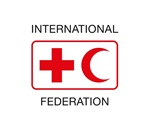This central space provides a range of services to people in vulnerable situations including migrants in an irregular situation and asylum-seekers, supporting their physical, informational, educational and social needs.
The Swedish Red Cross House is a 425 square metre building in the Skärholmen district in Stockholm. It has provided a variety of services without charge to vulnerable migrants since May 2015. The services span physical, human and social forms of capital. In terms of provision of basic needs, the centre provides food, showers in the morning, and sleeping rooms in the daytime daily to all guests. A nurse from the Swedish Red Cross Head Quarters also visits the House to provide health consultations. The centre further provides information to migrants on their rights and on Swedish society in general; additionally, when there is information the centre is not equipped to provide, there is a strong referral system to direct migrants to the best available source.
The House provides sewing classes, and Swedish language classes are offered three days a week by Swedish Red Cross volunteers. Additionally, the House serves as a social space for migrants to meet and interact; people from all backgrounds mix in the space and share their experiences. A range of social activities are organized including cultural and sporting activities. The centre is open to all migrants, with Afghans, Roma and Syrians the main nationalities represented. The House is managed by three permanent staff and 50-55 volunteers, 10-15 of whom provide support to everyone, but particularly to migrants, regardless of their legal status at any given time.
~80 people visit the centre daily.
Design. [P1] Focuses on meeting a wide range of migrant needs in one space.
Implementation. [P5] Links assistance and protection activities for migrants.
- Sustainability of funding, since the centre does not generate income.
- It is important to set and maintain clear house rules in order to maintain order and fairness.
- It is key to have some core staff with previous experience of work with migrants, in order to build the initial trust with migrants.
Smart practices
Smart practices report and database survey
About the report
People migrate in pursuit of a better life for themselves and their families. As described in the International Federation of Red Cross and Red Crescent Societies’ (IFRC) Policy on Migration, “migrants are persons who leave or flee their habitual residence to go to new places – usually abroad – to seek opportunities or safer and better prospects.
Read more
About the International Federation

